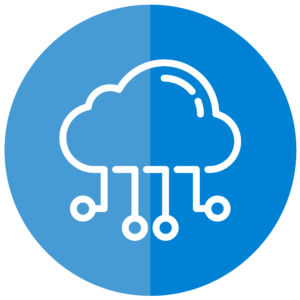Africa is home to the world’s most innovative fintech for digital payments Africa. Even though much of the world is still catching up with mobile money transfers, Africa has led the way via services like M-Pesa, Airtel Money and MTN Mobile Money. These platforms have changed how millions of people transact on a daily basis, by sending remittances or paying school fees. But as technology advances, a new wave is coming — decentralized finance Africa (DeFi). A question begging to be asked: will mobile wallets in Africa maintain traction or is blockchain-driven finance the future for digital payments Africa in the region?
Mobile Money The Story of a M-Pesa, an Idea; And Other: Africa’s Next Big Thing And How It Will Change Everything
Mobile money has been nothing less than revolutionary. For millions who had no access to traditional banking, services such as M-Pesa facilitated financial inclusion, making it possible for people to send, receive, and save money using nothing more than a basic mobile phone. Unlike mainstream banks with expensive charges and complicated prerequisites, mobile wallets provided simplicity, affordability, and ease.
Mobile wallets in Africa are now so much more than just payment services. They’ve turned into pathways to microloans, insurance products and even savings accounts. Rural farmers can get instant payments for crops, urban workers can remit money to their families, and small businesses can operate solely on mobile transactions. In a lot of ways, mobile money set the stage for the fintech explosion in the continent.
But, as pervasive as adoption is, there are still constraints. Mobile money systems, in many cases, remain siloed within certain telecom networks. Cross-border payments are expensive, slow, the fees for transactions gather up and interoperability issues restrict scale. Here’s where decentralized finance Africa comes in.
What Decentralized Finance Could Mean for Africa
DeFi is the next frontier of digital innovation in Africa. Fueled by blockchain, DeFi does away with intermediaries to deliver transparent, secure, and borderless financial services. Being able to make blockchain payments Africa means you can transmit money across countries within minutes and acquire it at a small portion of the expenses of traditional financial intermediary services. Nowhere is this potentially game-changing than in the world of remittances — an industry worth billions to the continent.
Lending and borrowing are also being recast by DeFi. Without needing to go through a bank or telecom provider, you can tap into peer-to-peer loans, or decentralized savings platforms — or join a yield-making protocol. For the continent of Africa – where much of the population is still unbanked – DeFi represents an opportunity to bypass antiquated financial infrastructure and jump straight into the fully-digital arms of financially inclusive alternatives.
Internet penetration is not yet widespread, regulation uncertainty is still taking shape, and there is a low level of understanding about blockchain technology. Although among the younger, urban population DeFi is likely to be rapidly embraced, the rural masses will still find mobile money to be better, and more accessible.
Mobile Wallet Africa vs. Blockchain for Payments Africa
The conversation of mobile wallet Africa and blockchain payments Africa is not so much a competition of which one will win, but where and how they might coexist, and feed off one another. Mobile wallets already have trust, scale and habit. They are woven into the fabric of African lives, sold in local markets, and knitted into domestic economies.
Presumably this is the kind of interoperability that blockchain has an advantage in. For the fintech ecosystem in Africa, the real opportunity is in bringing the two together. For example, if mobile wallets use blockchain under the hood, users could get to enjoy their usual apps, but with lower costs and the same wide reach.
Storytelling: Story of Two Payments
Take Amina, a market vendor in Tanzania, who is an active mobile wallet user in Africa. She accepts payments from customers, pays suppliers and even holds small savings—all on her mobile app. The accessibility of mobile money has changed her life.
Now meet Daniel, a Kenyan software developer who works with clients in Europe often. Daniel has a hard time receiving international payments. Conventional wire transfers are expensive and slow. With bitcoin payments in Africa, he can collect money in minutes directly into his phone wallet, bypassing banks that would have made him wait, charged higher fees and taken a cut of his income. Amina and Daniel embody both the breadth of Africa’s payment requirements — local inclusiveness and global connectivity. The solution is to construct a system that serves both.
Africa Fintech Future 2025: Next?
In the Africa fintech future 2025, convergence will be the buzzword. Mobile money isn’t going anywhere — it will still power financial access for millions. But much of its expansion will depend more and more on working with blockchain and DeFi platforms. It won’t be long until we have mobile wallet Africa that incorporate stablecoins or blockchain rails that allow us to transfer money from one country to another instantly and cheaply.”
Some governments are also experimenting with central bank digital currencies (CBDCs), which could further fuel the need for blockchain adoption. This means the future of fintech in Africa will be forged through collaboration between incumbent telecom-enabled systems and new decentralized networks.
Digital Payments Africa: Powering Digital Economies
Besides peer-to-peer money transfers, the growth of e-commerce is driving the need for efficient online payments Africa. From fashion brands in Lagos to tech startups in Cape Town, companies have more and more need for consistent, cross-border payment systems. Traditional card networks are not accessible to much of the population, and mobile wallets are generally limited to a single country.
This is where DeFi and blockchain integration comes to scale. Cheap and secure blockchain payments Africa can work great for online payments Africa marketplaces, linking African entrepreneurs with buyers worldwide, without the need for travel, with fast settlement across borders. This, along with the high level of trust and penetration of mobile wallets, has the potential to unleash Africa’s e-commerce possibilities.
The Future of Fintech in Africa: Potential and Challenges
The future of fintech in Africa is promising, but it must be treated as such. On the one hand, such a continent has a young, tech-savvy population, high smartphone penetration and increasing investments in digital infrastructure opposed to the West which is not as digitally mature. On the other hand, the regulatory infrastructure has not caught up yet, and risks like fraud, scams and DeFi market volatility are still valid considerations.
A three-pronged approach is needed by fintech innovators to gain a foothold: 1) building trust, 2) simplifying user experience, and 3) working closely with regulators. Blockchain won’t come along and replace mobile wallets on the spot but it sure can make them better. And, mobile wallets are powerless to address inefficiencies in global remittances without blockchain rails. Collaboration will define the winners.
A Call to Action: Constructing Africa’s Payment Future
The true question isn’t whether decentralized finance Africa will replace mobile money, but how they will intersect and create better, stronger ecosystems. For entrepreneurs and regulators, the emphasis should be on interoperability, regulation, and user education. For businesses, the winners will be those who are willing to adopt hybrid solutions — marrying familiarity, such as the minds and practices that understand a mobile wallet with the efficiency of blockchain, or cryptocurrency — in a world dominated by digital commerce.”
The next few years will be critical. By integrating blockchain and mobile money, Africa has the chance to not only catch up with, but to drive world fintech. A continent that led the world with mobile money can similarly lead with inclusive decentralized finance.
Contact Us Today













